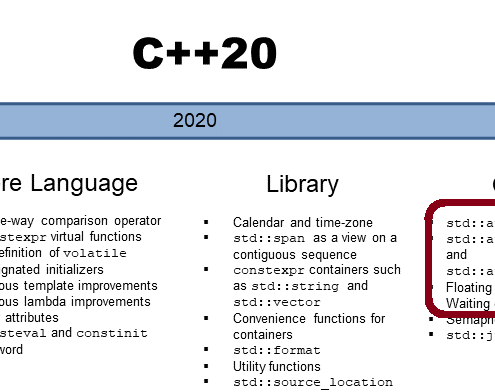
atomic<shared_ptr<>> by Oliver Schädlich
This blog article is an experiment. A few days ago, I received the following email (translated from…

Feature Testing Macros
The feature testing macros is a relatively unknown feature in C + + 20. They give you the definitive…
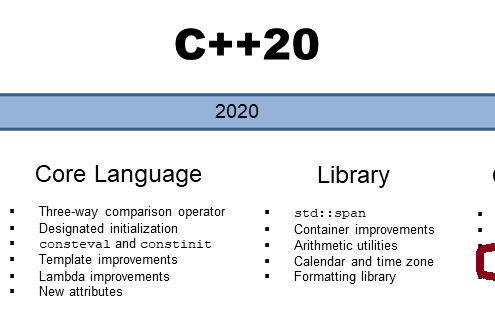
Cooperative Interruption of a Thread in C++20: Callbacks
I introduced in my last post "Cooperative Interruption of a Thread in C++20" callbacks. Today, I dive…
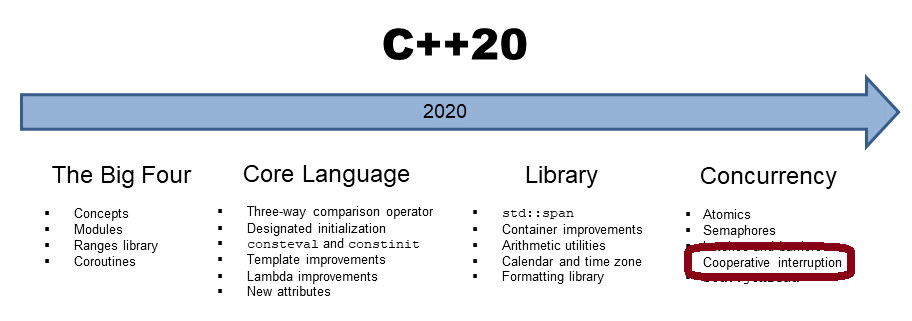
Cooperative Interruption of a Thread in C++20
/
0 Comments
A typical question in my C++ seminars is: Can a thread be killed? Before C++20, my answer is no. With…
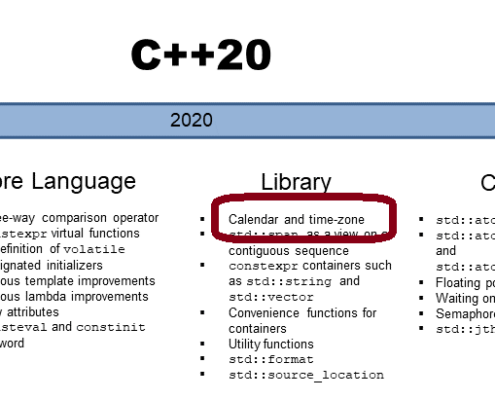
Chrono: Input
You can also apply the format specifier for formatted input.
This post is the eleventh in my…
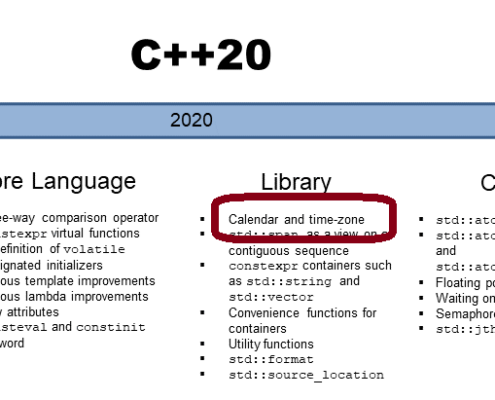
Chrono I/O: Unformatted and Formatted
Chrono I/O consists of reading and writing chrono types. The various chrono types support unformatted…

Chrono I/O
Chrono I/O consists of reading and writing chrono types. The various chrono types support unformatted…

Time Zones: Online Classes
Today, I will continue to present the functionality of the time zones of the C++20 chrono extension.
This…

Time Zones: Details
Today, I present the time-zones functionality of the C++20 extension.
This post is the seventh…

C++20: Query Calendar Dates and Ordinal Dates
The extended chrono library makes it relatively easy to ask for the time duration between calendar dates.
This…
